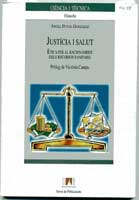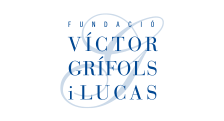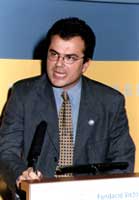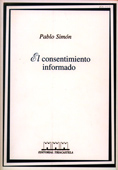2003
José Ignacio Ricarte Díez, The dissertation for his Ph.D. in Medicine from the Universidad de Zaragoza.
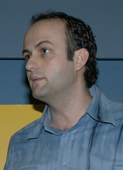
The health sciences are experiencing a shift in the current paradigm. The medical view of death is tending toward an interdisciplinary approach in treating the terminally ill. Palliative care units are becoming the norm in hospitals, and a person's health is increasingly viewed as a whole, a concept which transcends the more restrictive idea of health as the absence of illness. The health profession is seriously re-evaluating how it tends to the needs of the dying as these dilemmas are very difficult to resolve given the difficulty of evaluating the patient's feelings or human suffering.
Based on the ten rights of the terminally ill patient established by the Catalan-Balear Society of Palliative Care, the author conducted surveys in two public hospitals (San Jorge Hospital in Huesca and Can Misses Hospital in Ibiza) to evaluate hospital compliance with these rights.
Ricarte Díez, J.
Evaluación de los derechos de la persona en situación terminal en un hospital general.
Barcelona: Institut Borja de Bioètica, Fundación Mapfre Medicina, 2003. 155p.
ISBN: 84-7100-743-6
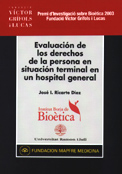
2002
Carmen Tomás-Valiente Lanuza, Professor of Penal Law in the Law Faculty at the Universidad de Valencia
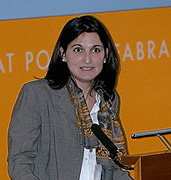
Carmen Tomás-Valiente discusses article 143 of the new Penal Code, paying close attention to the meaning and scope of the legal text, and analyzing the reasoning on which it is based. She then goes on to consider other ways of looking at these problems together with other lines of legal argument. These provide the basis for the comparison of theories and practices which serve to help understand the large number of factors which need to be taken into consideration when specific decisions are made.
Tomás Valiente, C.
La cooperación al suicidio y la eutanasia en el nuevo código penal.
Valencia: Tirant Lo Blanc, 2000. 160p.
ISBN: 10 8484421155
2001
2000
Javier Sobrevía Vidal , Presented as a doctoral thesis in Medicine and Surgery in the Medical Faculty at the Universidad de Navarra

The aim of this thesis was to study the frequency, intensity and content of the communication which occurs between the doctor and the terminally ill cancer patient, with the aim of detecting whether or not this qualitatively and quantitatively meets the patient's expectations. A prospective study was designed in which 94 patients completed a questionnaire and an individual interview.
1999
Àngel Puyol González, Professor of Moral Philosophy and Politics at the Universitat Autònoma de Barcelona
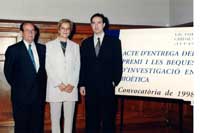
Who should we allow to die? This is the kind of decision which today's welfare state in crisis must confront. The days when medical technology was economically accessible to attend to all those who needed it has given way to a new context of growing financial difficulties in the provision of public services. The result is the need to ration scarce health resources.
It is vital to build consensus on a topic such as this. In the context of enforced budget restrictions, some people will die while the health of others will be seriously compromised. As a consequence, all members of society have the right, and also the obligation, to form part of the process that creates and distributes the results of this reasoning.
Puyol, A.
Justícia i salut. Ètica per al racionament dels recursos sanitaris.
Barcelona: Servei de Publicacions de la Universitat Autònoma de Barcelona, 1999. 186p.
ISBN: 84-490-1469-7
